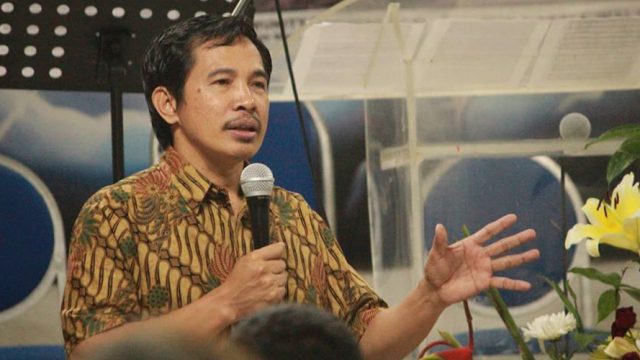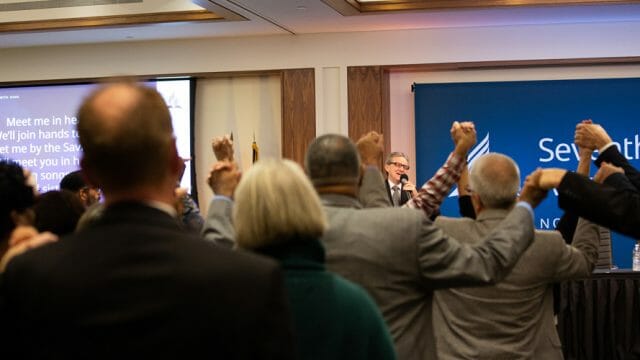ADRA’s BRAVE initiative seeks to minimize the COVID-19 threat amid various challenges.
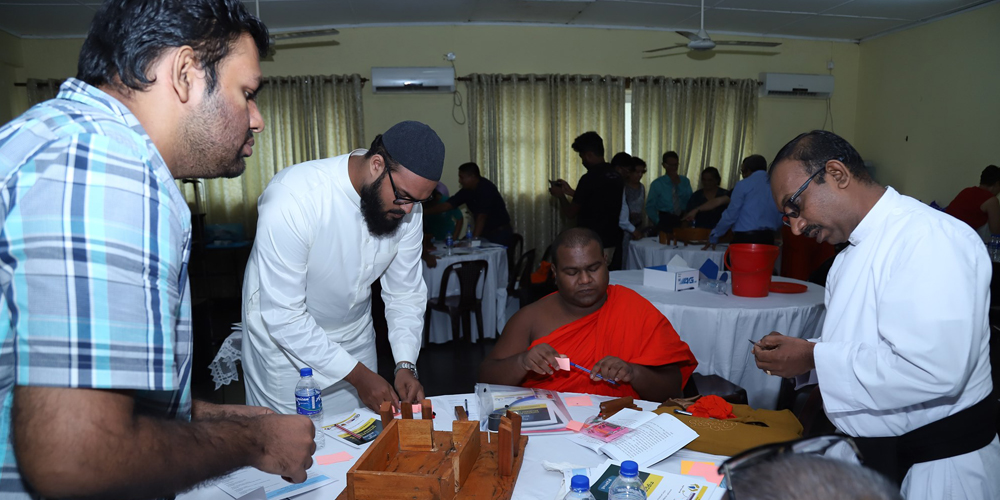
The pear-shaped island nation of Sri Lanka is on the verge of a health crisis, and with a population of more than 21 million people, hope in the country for the COVID-19 pandemic to recede remains neutral.
The impact of the virus has caused businesses to close, workers to be laid off, and patient numbers increasing at hospitals, spiking a shortage of intensive care unit beds.
According to a study by Sri Lanka’s Ministry of Health, most communities are taking measures to prevent the virus by wearing face masks, washing or sanitizing their hands, keeping six feet apart, and being vaccinated. The study also revealed, however, that with the spread of misinformation through WhatsApp, Facebook, and other platforms, people are being misled, and there has been a gap in disseminating factual information. As a result, the health ministry’s study reported, the virus won’t go away anytime soon.
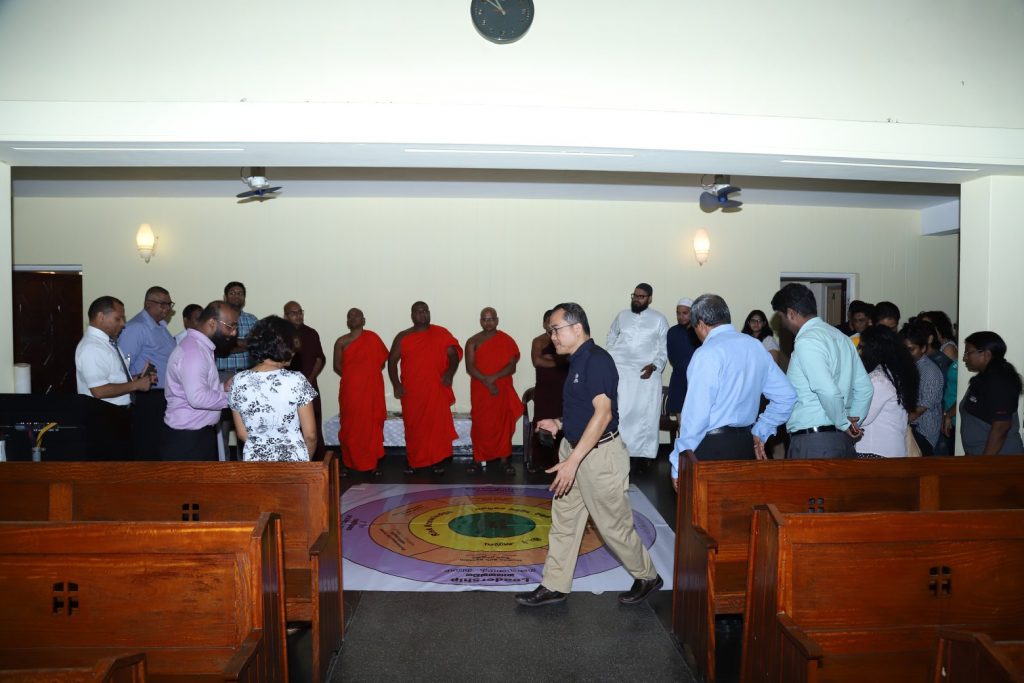
The Adventist Development and Relief Agency (ADRA), which is stationed in seven districts of Sri Lanka, is teaming up with local authorities, the Seventh-day Adventist Church, and interfaith partners to address the most challenging preventative issues arising on the island. Another goal is to find a way to tackle the problem by coming up with practical solutions. ADRA created a program called BRAVE, which is short for “building resilience and vaccine awareness” and will be advanced in collaboration with interfaith groups.
“Our team has been organizing and providing water, sanitation, and hygiene efforts to meet the needs of people since the first wave of the pandemic,” Matthew Whitty, ADRA’s country director in Sri Lanka, said. “Our efforts have recently shifted toward helping the most vulnerable communities get through this health crisis. We realize that in the likely event of varying disasters such as this pandemic to occur in the future, forming relationships and being prepared are key to minimizing severe impacts.”
Bridging the Gap through Inter-Faith Groups
It is commonly known on the island that places of worship, religious organizations, congregations, and spiritual leaders are among the best means of support for their communities. Additionally, places of faith and worship are often seen as safe havens or shelters in times of trouble.
“Sri Lanka is predominantly a Buddhist nation, and spiritual leaders in the communities are often revered as people who can be trusted. They support the communities in times of recovery and have the people’s best interest at heart, whether through physical, psychological, or spiritual support. Many communities are built around places of faith, most commonly Buddhist temples,” Whitty said.
He said that ADRA has not worked before with interfaith groups in Sri Lanka on a disaster effort and needed to win the people’s trust for its COVID-19 relief efforts.
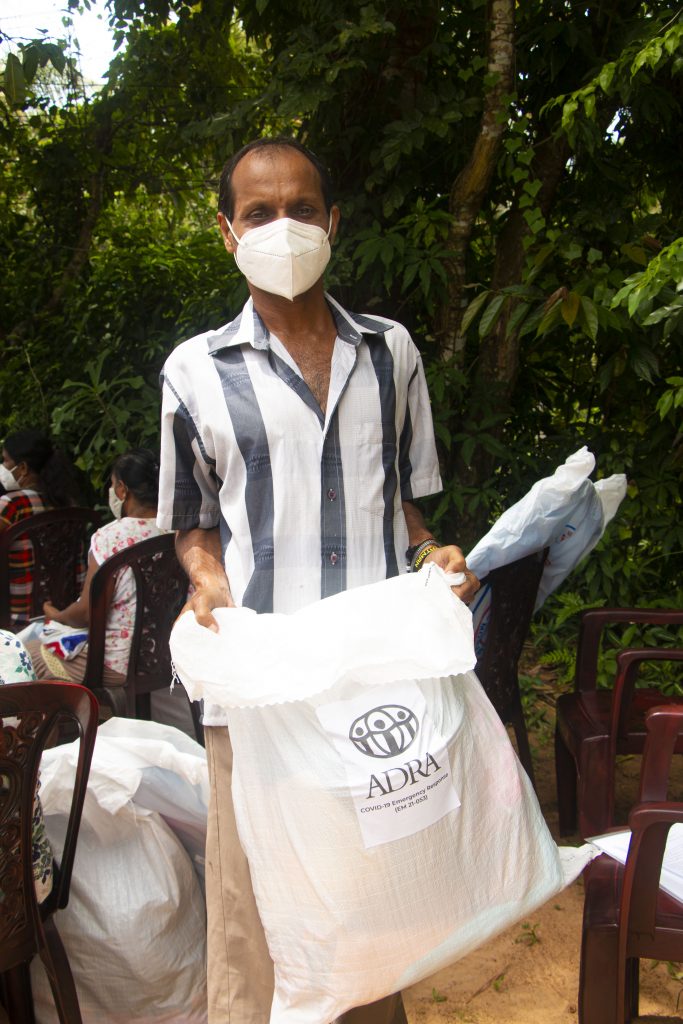
“To get the communities to see that we are there to help them, we came up with a framework called Know Your Reality. [Through it,] faith groups, including the Adventist Church, will establish an interfaith pandemic relief team [IPRT] to coordinate forums that will help facilitate informative trainings among targeted districts,” Whitty said.
The IPRT would work with and increase the capacity of faith leaders to head the forums, then identify families with the most vulnerable members that would be prioritized for vaccination, including the elderly (aged 60 and above), frontline health-care workers, and law enforcement officials. Each forum would focus its efforts on addressing COVID-19 preventative measures, debunking vaccine myths, and providing accessible resources about vaccines.
Support for the People
Faith leaders who will lead out in forums will also undergo psychological first aid training.
“While faith leaders are well equipped to handle the spiritual needs of their fellowships, sometimes they are not equipped to address and respond to meet the psychological needs that arise in a crisis — in this case, situations involving COVID-19,” Whitty said.
The online training, according to Whitty, will include the basic responses needed when responding to any psychological need and will only be applicable until such time as an individual is referred to a professional for support.
Another group in Sri Lanka who will be supported are the deaf. ADRA will be working with the country’s Ministry of Health to develop video messages that use sign language interpretation to address COVID-19 prevention awareness.
“People who are deaf are often not included in communication methods, and in Sri Lanka, we are putting in place strategies to help them make informed decisions about available prevention measures,” Whitty said.
He shared that ADRA will be working with an Adventist youth group known locally as the Youth Inspire Team to offer support.
“Several young people in this group are fluent in sign language, and they have willingly obliged to help us put these video messages together for people who cannot hear. We are also working with a professional sign language interpreter to ensure the messages are accurate,” Whitty said.
Serving Amid Natural Disasters
ADRA had to switch gears from its BRAVE program planning in early June 2021 to respond to flooding and landslides in the southern region of the island.
Several districts were flooded by heavy rains that affected more than 270,000 people, with more than 26,800 displaced people staying in safety centers. Local authorities additionally report there have been minor structural damages and 17 deaths.
“The water has not receded, and there’s a chance for water levels to rise. With a partner in the region, we conducted a rapid needs assessment to determine locations best suited for our emergency response,” Whitty says. “There are also reports of families returning to their homes for fear of contracting COVID-19 in evacuation centers. While the flooding may delay the BRAVE project, our team has been prioritizing efforts to keep survivors in safety centers safe.”
Whitty says his team will be at the forefront of spreading awareness about COVID-19 prevention and targeting people at risk of contracting the virus.
“We’ve formed wonderful relationships in Sri Lanka to be seen as a trusted source of help. For now, we must be strategic, plan accordingly, and keep vigilant as the rains subside,” he said.
The original version of this story was posted by the Adventist Development and Relief Agency.




